What's New
Displaying results 1641 - 1650 of 4052
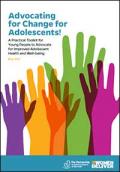
Resource | Tools,
This toolkit was developed by young people, for young people, to be used by networks of youth-led and youth-serving organizations to change the world! The toolkit will also be useful for others, including civil society groups, government departments and everyone concerned with adolescent health and well-being.
The purpose of this toolkit is to guide the design, implementation and monitoring of an effective national advocacy action roadmap to bring about positive policy-specific changes to improve the health and well-being of adolescents.
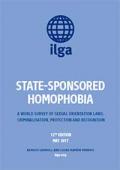
Resource | Publications,
The fundamental purpose of producing ILGA's annual State Sponsored Homophobia publication is to compile information on the world’s laws that are relevant to sexual orientation in one place. In addition to ILGA’s membership of around 1300 SOGIESC-related organisations, this publication is primarily designed to provide a body of accurate and credible reference sources to researchers, human rights defenders, agencies, organisations, institutions and allies.
Building on the authorship of previous editions, this year the publication provides significantly more comprehensive coverage of each State where specific sexual orientation law pertains. Through the use of hyperlinks (in red font throughout) rather than footnotes, the digital form of this publication connects to a substantial body of primary and secondary sources.
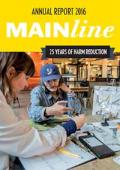
Resource | Publications,
This year marks the 25th anniversary of the Mainline Foundation, and this provides an opportunity to reflect on twenty-five years of harm reduction.
Our mission to reduce the number of HIV infections among drug users through education – the purpose of Mainline’s establishment in 1991 – has been achieved. Or at least the number of HIV infections is no longer on the rise, and most users have a roof over their head. But the fringes of this phenomenon remain. Crystal meth is slowly seeping into the Netherlands. GHB is being quietly used in the provinces. And freebase cocaine dealers are still doing a roaring trade each week when those who depend on drugs receive their allowance from the budget-maintenance service. And abroad, where Mainline is also active, improving the legal status of people who use drugs remains high on the agenda.
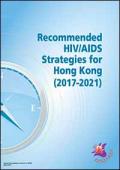
Resource | Publications,
This document is the fifth set of strategies developed by the Hong Kong Advisory Council on AIDS (ACA) since 1994. The process of its formulation adopted a wide-based approach of engaging different parties, including Community Stakeholders’ Consultation and gathering the input of individuals, groups and organizations as well as the general public during the subsequent public consultation.
Hong Kong has fortunately maintained a low HIV infection rate for 3 decades since the first reported case in 1984. The Government, NGOs, the community and other stakeholders work collectively on a comprehensive AIDS programme which encompasses surveillance, health promotion and HIV prevention, treatment and care, and is underpinned by policy-setting and programme funding.
The objectives laid down in the Strategies are in line with the 90-90-90 treatment targets together with the 90% coverage of HIV combination prevention services set by the UNAIDS.
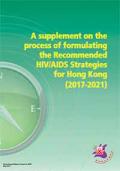
Resource | Tools,
In the 37th meeting of the Community Forum on AIDS (CFA), the request was made that ACA provide the reasoning for not adopting suggestions (if any) raised by stakeholders during the strategy formulation. In the 92nd ACA meeting, members agreed to address those suggestions that were most controversial, with a view to helping stakeholders and relevant communities understand the rationales behind the new set of Strategies, and also draw support from society at large.
Accordingly, this document lays out the rationales during the process of formulating the Strategies for 2017-2021, including the key factors considered, the guiding principles, the views collected during stakeholder and public consultation, and the deliberations involved in some specific issues.
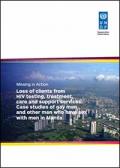
Resource | Publications,
The purpose of this study was to document why significant numbers of men who have sex with men based in Metropolitan Manila (also known as Greater Manila, Metro Manila and Manila) currently do not access HIV services at different levels of the HIV treatment cascade.
Qualitative interviews were conducted with 48 men who have sex with men from four cities in Metropolitan Manila to explore barriers they faced at four levels of the HIV service cascade: HIV testing; the follow-up of a reactive HIV test; enrolling on antiretroviral treatment (ART); and adhering to ART.
The reasons for all of these barriers are diverse. Some are at the social level in terms of stigma and discrimination, or economic hardship. Some are internal, based on the attitudes, beliefs or behaviour of the men. Other barriers are institutional, at the policy level or in the health care system.

Resource | Fact Sheets,
In Hong Kong, the number of HIV cases transmitted through injecting drug use (IDU) has remained low up till now and contributed to less than 5% of all reported cases cumulatively. However, the potential risk of cluster outbreak and rapid upsurge of infection among the IDU population is always a concern. To monitor HIV-related risk behaviours and access to HIV testing services among IDU, this population has been included as one of the four at-risk populations in the HIV/AIDS Response Indicator Survey (HARiS) implemented since 2013. The fourth round of survey was conducted in 2016 via commissioning to the Stanley Ho Centre for Emerging Infectious Disease, School of Public Health and Primary Care of the Chinese University of Hong Kong.
The aims of HARiS survey was to establish a community-based behavioural survey with collection of standardized strategic information; to provide data of a pre-defined set of core indicators among the major at-risk subpopulations for surveillance of HIV-related risk behaviours and HIV testing patterns; and to enable the indicators to be tracked and compared over time for evaluation of the coverage and effectiveness of health-promotion and surveillance programmes in Hong Kong.
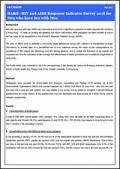
Resource | Fact Sheets,
Men who have sex with men (MSM) has continued to account for a significant proportion of newly acquired HIV infections in Hong Kong. To keep on tracking the epidemic and inform intervention, MSM population has been included as one of the five major at-risk populations in the HIV/AIDS Response Indicator Survey (HARiS).
The aims of HARiS were to establish a community-based behavioural survey with collection of standardized strategic information; to provide data of a pre-defined set of core indicators among the major at-risk subpopulations for surveillance of HIV-related risk behaviours and HIV testing patterns; and to enable the indicators to be tracked and compared over time for evaluation of the coverage and effectiveness of health-promotion and surveillance programmes in Hong Kong.
The fourth HARiS was conducted in 2016 via commissioning to the Stanley Ho Centre for Emerging Infectious Disease, School of Public Health and Primary Care of the Chinese University of Hong Kong.
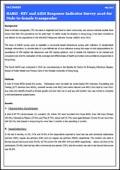
Resource | Fact Sheets,
Male-to-female transgender (TG) has been a neglected and hard-to-reach community, yet various overseas studies have shown that their HIV prevalence can be quite high. To better study the situation in Hong Kong, it has been included as one distinct at-risk populations in the HIV/AIDS Response Indicator Survey (HARiS) since 2014.
The aims of HARiS survey were to establish a community-based behavioural survey with collection of standardized strategic information; to provide data of a pre-defined set of core indicators among the major at-risk subpopulations for surveillance of HIV-related risk behaviours and HIV testing patterns; and to enable the indicators to be tracked and compared over time for evaluation of the coverage and effectiveness of health-promotion and surveillance programmes in Hong Kong.
The fourth HARiS was conducted in 2016 via commissioning to the Stanley Ho Centre for Emerging Infectious Disease, School of Public Health and Primary Care of the Chinese University of Hong Kong.
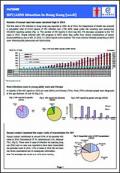
Resource | Fact Sheets,
The first case of HIV infection in Hong Kong was reported in 1984. As of 2016, the Department of Health has received a cumulative total of 8,410 reports of HIV infection and 1,766 AIDS cases under the voluntary and anonymous HIV/AIDS reporting system. The number of HIV reports in 2016 was 692, 5% decrease compared to the 725 cases in 2015. People infected with HIV progress to AIDS when they suffer from clinical complications of severe immunodeficiency due to HIV. In 2016, 111 AIDS reports were received. The most common illnesses presenting at AIDS were Pneumocystis pneumonia and tuberculosis.





